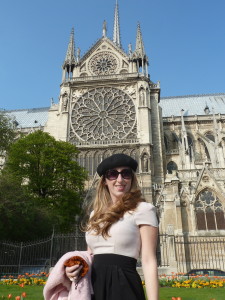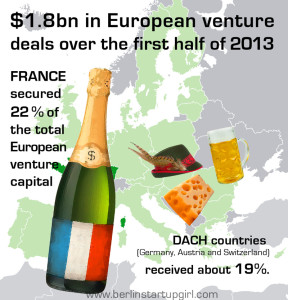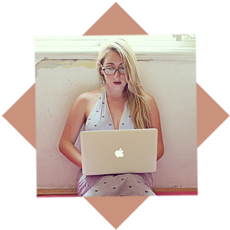When I think of Paris, I think of making out with strangers, drinking wine from the bottle in the Place Des Vosges, and macaroons. Startup ecosystem in the same sentence as Paris never crossed my mind.
This changed last month, after I wrote about the Israeli startup scene with a link to the Startup Ecosystem Report. The comments I received were not about Israel, but Paris. People were outraged that Paris was ranked 11th while our beloved Berlin was in 15th place. How could this be? I decided to buy a last-minute ticket to Paris to check it out myself.
After spending four days talking to French investors, entrepreneurs and accelerators, Paris began to feel like brash Berlin’s elegant older brother. Berlin tosses you a beer in the Betahaus courtyard; Paris pulls out your chair and orders the most expensive bottle of Côtes du Rhône. The energy is more refined, but it is there, and so is the funding.
Why Would You Build A Company In France?
I kicked off my visit at Rude Baguette’s monthly Founders Event, hosted by the enthusiastic editor and former Californian Liam Boogar. We met again the following day at the Poissonniere Starbucks (yes, Starbucks in Paris) so I could pick his brain about the differences between Paris and the Valley, but never had the opportunity. Liam, seriously popular, had so many meetings back-to-back that the morning turned into informal office hours. American entrepreneurs, Bulgarian investors, and French techies circled in and out, a kind of Starbucks salon.
Several points were becoming clear: Paris doesn’t spend time on hype. Not one person at the monthly Rude Baguette’s Founder event tried to convince me that Paris is the place to be. Berliners may be dreamers, but Parisians are realists. The French entrepreneurs readily admitted that it is a bitch to build a company in France. Nobody attempted to sugarcoat the bureaucratic obstacles or the dismal tax situation.
At the same time, France has a solid technical infrastructure and some serious talent, with thousands of engineers coming out of top programs. They also have money. ISAI, Jaina Capital, and Kima Ventures – the most active angel investors in the world – will invest in one hundred startups this year. According to a report by venture capital firms DFJ Esprit and Go4Venture Advisers, based on data from about $1.8bn in venture deals over the first half of this year, France secured 22 percent of the total European venture capital, and the DACH countries (Germany, Austria and Switzerland) received about 19 percent. Financially, Paris is hot.
Locally Grown with Incredible Talent
One of my favorite aspects of Berlin is the international diversity. Among my startup marketing clients are founders from Germany, Denmark, Ukraine and Italy, and we all communicate in English.
By comparison, the Parisian scene is overwhelmingly homegrown. About 80% of the entrepreneurs I met were French (almost half of which were hoping to move to the Valley). A remarkable number were bootstrapping and living with their families to get by since the cost of living is 42% higher in Paris than in Berlin.
President Hollande is trying to lure international talent with talks of a new entrepreneur visa for foreigners seeking to set up innovative start-ups in France, as long as they invest a “sufficient amount” of money, but the specifics, including how this program differs from the EU Blue Card is at this point unclear.
Taxes
France is not known for being friendly to foreigners or businesses, especially where taxes are concerned. A certain French film star (My Father the Hero, anyone?) made international news when he bailed to Russia to avoid taxes.
Things are changing. Slowly. Earlier this year, President François Hollande announced ten pro business measures that would affect France’s startup scene. He introduced a graded scale for tax breaks on capital gains for entrepreneurs who bought start-ups: 65% if the company has been held at least eight years and 50% after two years. Progress, right? Experts say that Hollande’s plan would mean an effective tax rate of 60%, compared with 15% on long-term capital gains in the US.
After two days with French founders and American angels interested in France, I decided that France is where I will move after I build and sell my startup. The money that I would save on capital gains alone would pay for a chateau in Burgundy.
Then, I met TheFamily.
Paris Lives Up To The Romantic Reputation, Even In The Startup Scene.
Maybe you have heard of Paris’s new accelerator TheFamily? They were recently featured in TechCrunch for raising ‘just under’ one million Euros from Index Ventures.
Alice Zagury, TheFamily’s co-founder and CEO, graciously invited me to their regular Thursday night dinner. The address was on a chic side street in the Marais, but I would have wandered all night if I had not run into Liam a block away. He escorted me to their unmarked blue door squeezed between trendy boutiques where, despite all inventory marked half off, it is still impossible to find a dress for less than four hundred euros.
I was buzzed into a courtyard and greeted by the svelte and elegant Sandrine, who gave me a tour of the apartment (whose former inhabitant was some kind of movie star) including the Barbie bathroom with pink walls and sparkly pink tiles. I was home.
TheFamily is different from all other accelerators that I have had the pleasure of getting to know. For 1% equity, TheFamily will provide what they call ‘education and unfair advantage’ including access to mentors, special workshops with catchy names like Les Barbares Attaquent! as well as networking opportunities. They are focused not only on money, but also on revamping the French ecosystem by way of government lobbying and collaborating with other incubators. Co-founder, Nicolas Colin (whom I did not meet) is the go-to-guy when it comes to anything policy related. He recently published a report commissioned by the French government on the tax system and the digital economy.
Each week, they organize a family dinner, an intimate affair with a featured guest and mind-blowingly delicious food prepared by co-founder Oussama Ammar. On the night I attended, the guest of honor was Tikhon Bernstam, San Franciscan bro and founder of Scribd and Parse (recently acquired by Facebook for 85 million).
Tikhon’s talk was followed by bottles of wine and more conversation, soon accompanied by Oussama’s roast chicken and a superb ratatouille. Luckily, I was seated next to the chef who, in addition to making the best meal I had in Paris, launched his first company at age twelve, and made me envious with his travel stories, a feat very few people have the power to do these days. In an earlier age of Paris, this group would have been talking revolution, or art, or existentialism. Today, they are growing companies and transforming the startup landscape. While the French government is stumbling around trying to figure out how to encourage startups and innovation, TheFamily is doing it, along with wine pairings.
And they have a castle. Let that one sink in.
Dining room table or ping-pong table?
The startup ecosystem report is suspect, but you already knew that. Any score that includes a Mindsetter Index (“how well the population of founders in a given ecosystem think like great entrepreneur”) cannot really be taken seriously. The fact is: Berlin and Paris are booming tech hubs and entrepreneurs would be lucky to live in either.
They feel different, but whether you are learning about customer development in a castle in Normandy, or on a beanbag in a warehouse near Checkpoint Charlie, the goal is the same: make money, disrupt the market, and change the world.



Recent Comments